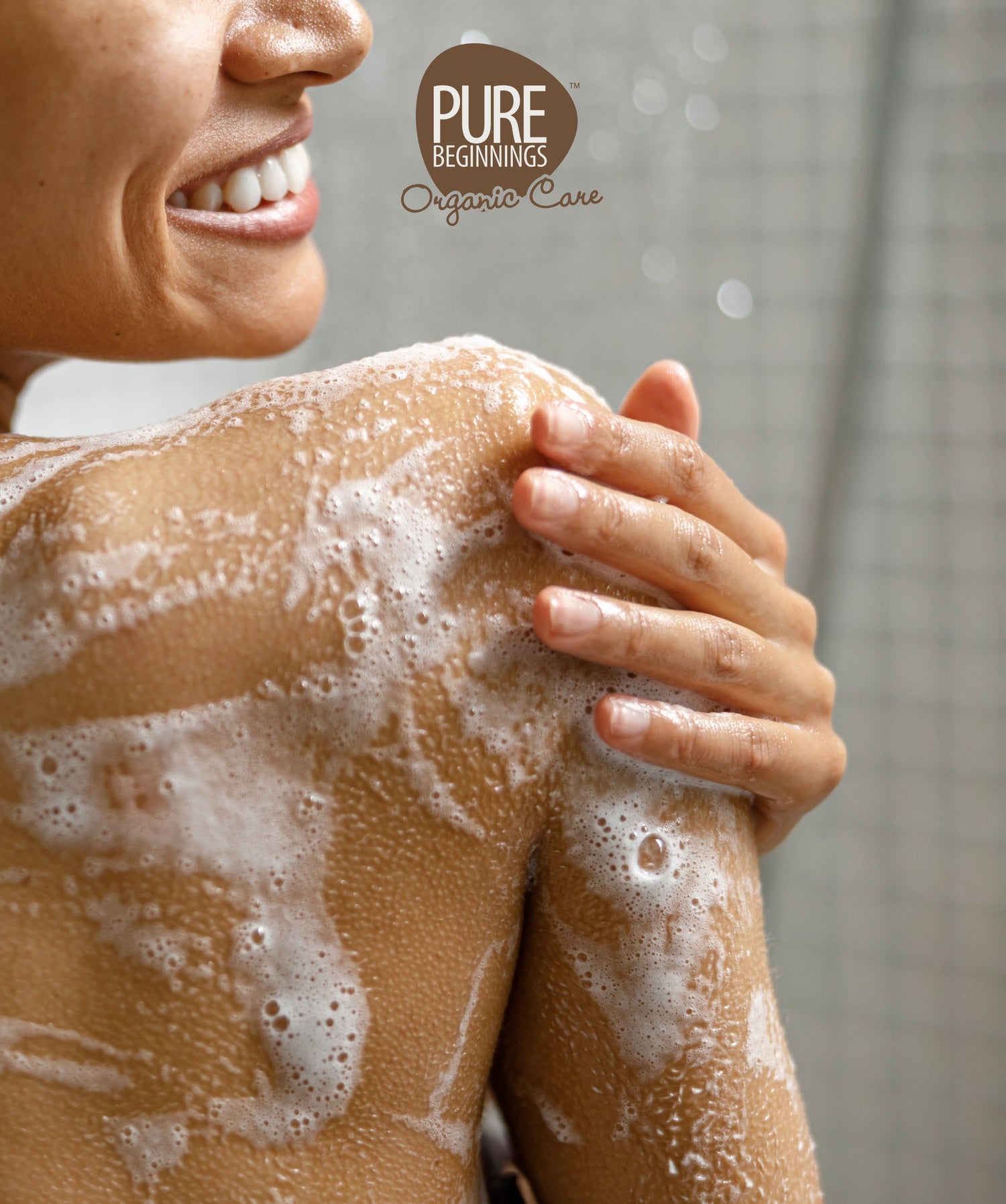
Lightening Your Chemical Load
Lightening Your Chemical Load Every day, our families come into contact with countless products — from the toothpaste and deodorants we use, to the washes we lather on our bodies,...

NEWBORN BABY GUIDE
When it comes to caring for your newborn, choosing the right skincare products is an important step. Baby skin is delicate, different from adult skin, and needs special care. Here's what you need to know:
Your baby’s skin is still developing and can’t yet do all the things adult skin can. It’s more vulnerable to irritants, dryness, and environmental stressors, so it needs gentle, nourishing care.
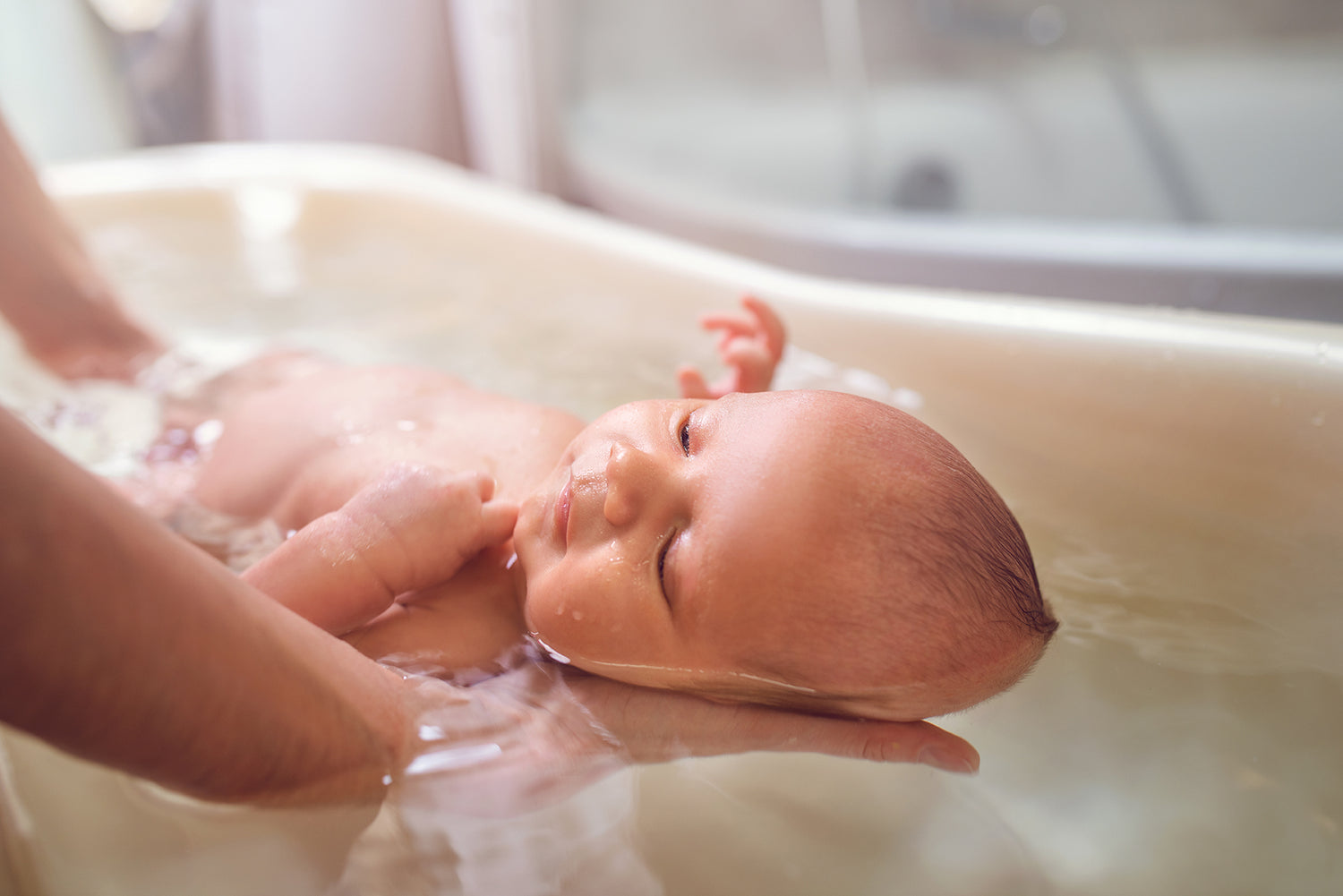
Baby skin is thinner and more permeable than adult skin, which makes it easier for substances to pass through. That means anything applied to their skin can be absorbed more deeply and may have a greater effect on their small bodies.
Pure Beginnings Tip:
Avoid harsh or synthetic ingredients like parabens, petrochemicals, and artificial fragrances. Certified organic products like Pure Beginnings are a safe, worry-free choice—free from harmful chemicals and thoughtfully formulated for delicate skin.

Newborn skin starts off dry and takes time to adjust. Babies also have fewer Natural Moisturising Factors (NMFs), like fatty acids and glycerin, which help lock in hydration and support a healthy skin barrier.
Pure Beginnings Tip:
Use moisturisers made with nourishing plant oils such as almond, avocado, marula, and olive. These oils are rich in NMFs and support the skin’s natural hydration. Unlike petroleum-based products—which simply form a barrier—plant oils also nourish and allow skin to function as nature intended.
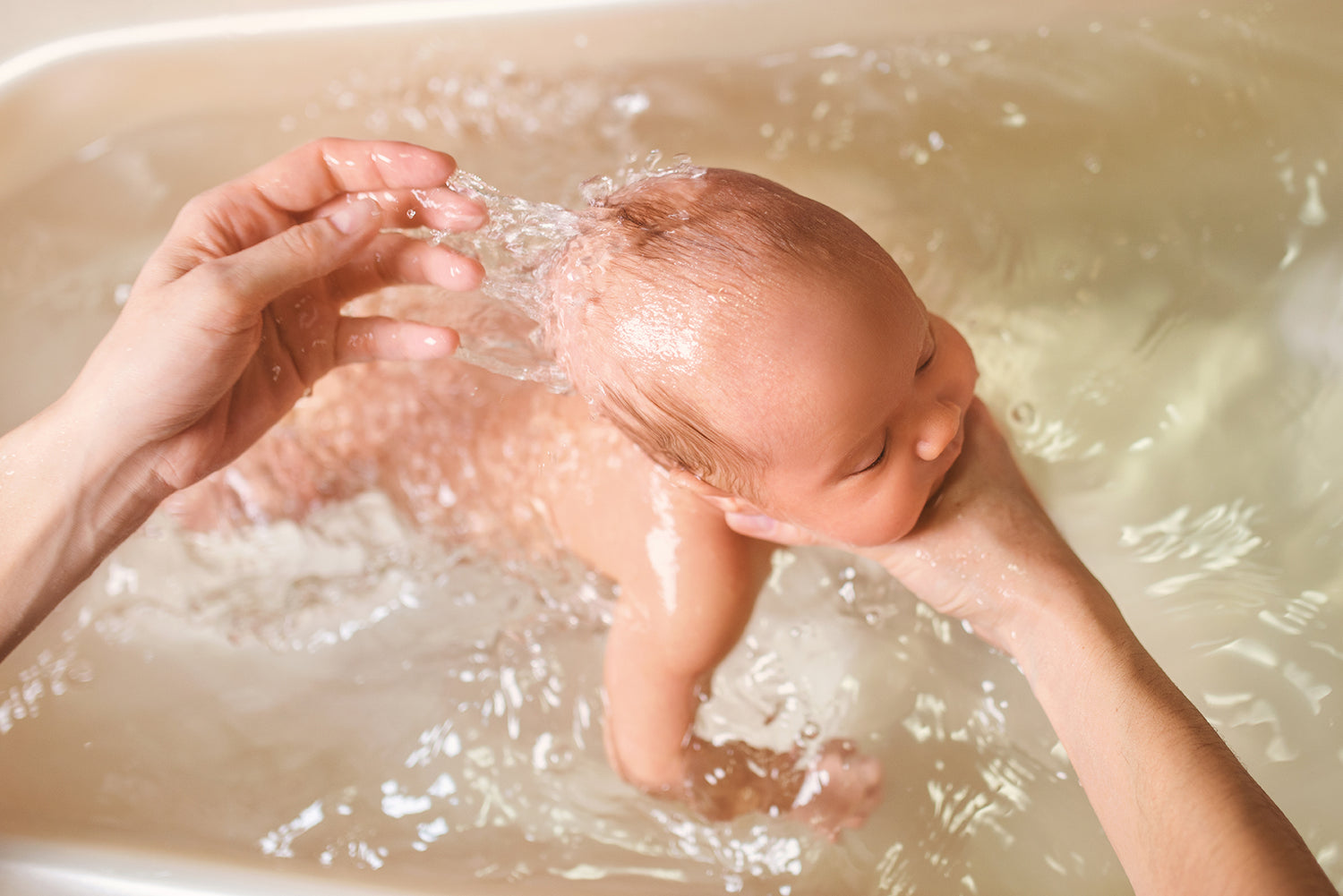
A baby’s skin pH is higher than an adult’s, making it more susceptible to irritation and imbalance. Many conventional soaps and bubble baths are highly alkaline (with pH levels up to 9), which can disrupt the skin’s natural acidity and compromise its protective barrier.
Pure Beginnings Tip:
Choose pH-balanced products that support your baby’s skin barrier. Pure Beginnings formulations are aligned with the natural pH of healthy skin, helping reduce the risk of irritation and conditions like eczema.

Babies have lower levels of melanin; the pigment that helps protect against sun damage. Their thinner skin also allows more UV rays to penetrate, increasing their risk of sunburn.
Pure Beginnings Tip:
Protect your baby with shade, breathable clothing, and wide-brimmed hats—especially during peak sun hours. It’s best to avoid sunscreen before 6 months of age, but if sun exposure is unavoidable, apply a small amount of non-nano mineral-based sunscreen to limited areas.

Although babies are born with sweat glands, they aren’t fully functional in the early months. Combined with immature blood vessel function, this makes it harder for babies to maintain a stable body temperature.
Pure Beginnings Tip:
Dress your baby in light, breathable layers and monitor them for signs of overheating or chills. Moisturisers made with plant oils support natural skin function and allow skin to breathe—unlike petroleum-based products, which can block pores and trap heat.
That creamy coating on your newborn’s skin? That’s vernix caseosa—a naturally protective, moisturising substance that also delivers beneficial microbes to the skin. It plays a crucial role in protecting your baby in the first hours after birth.
Did You Know?
The World Health Organization recommends delaying your baby’s first bath for at least 6 hours—ideally up to 24 hours—to let the vernix do its job.
Microbes often get a bad rap, but not all are harmful. In fact, trillions of beneficial microbes live on the skin and inside the body—helping to support immunity, reduce moisture loss, and defend against irritation.
Your baby’s microbiome begins developing at birth, but modern factors like C-sections, antibiotics, and harsh skincare can reduce its diversity. A disrupted microbiome can lead to sensitive skin, dryness, and conditions like eczema.
Factors that may reduce this diversity include:
• C-section births (which bypass exposure to vaginal microbes)
• Shorter or no breastfeeding
• Antibiotic use during pregnancy or infancy
• Overuse of antibacterial products and harsh cleansers
Emerging research links this microbial imbalance to rising rates of allergies, eczema, autoimmune conditions, and other health concerns.
Supporting your baby’s skin microbiome by using gentle, non-stripping cleansers and moisturisers that respect the skin’s natural balance. Avoid harsh antibacterial ingredients like triclosan and opt for products with plant oils and probiotic support.
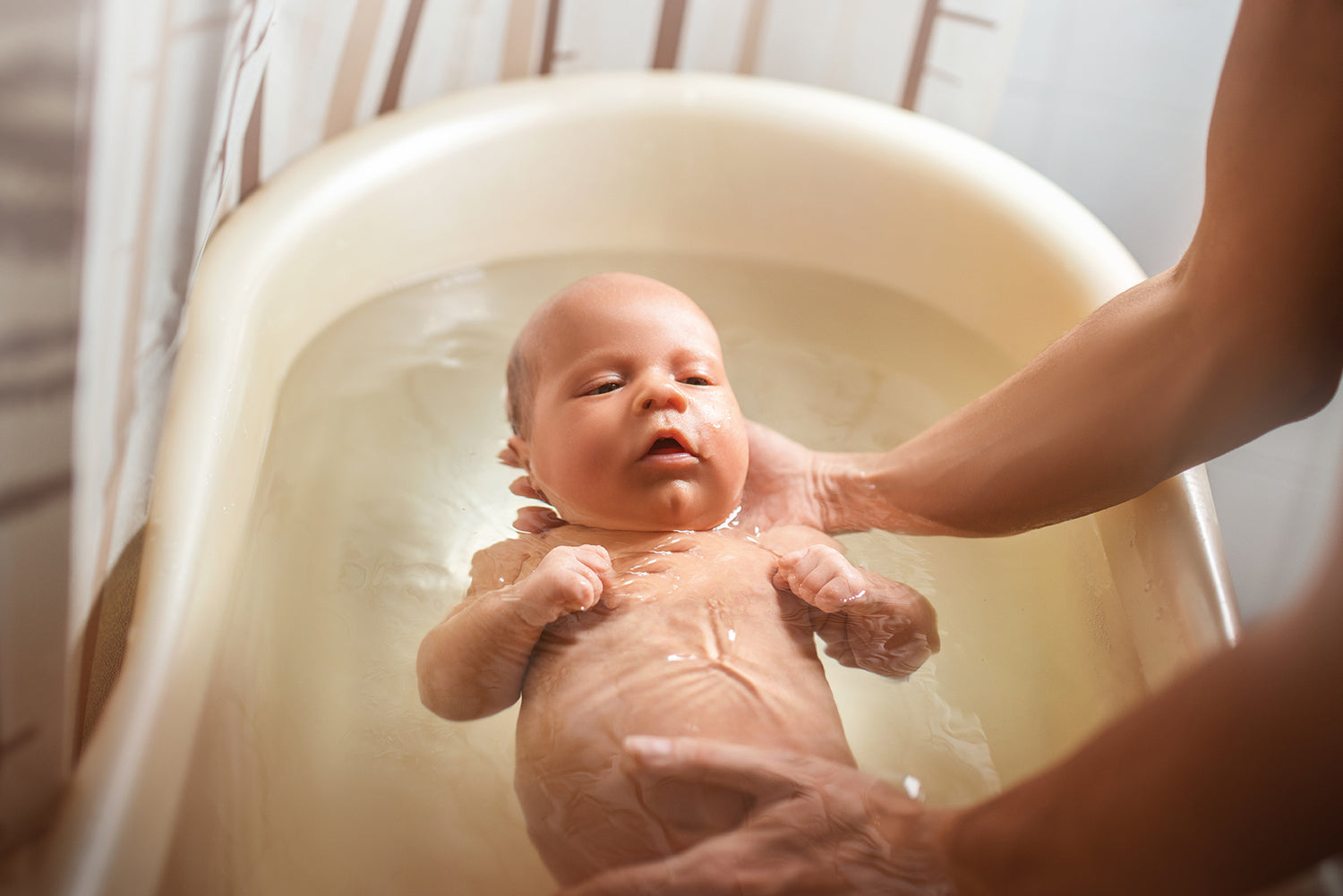
For your baby’s first bath and early weeks, we recommend our Sensitive Baby Ultra Gentle Cream Wash followed by the Sensitive Baby Moisturising Body Cream. These allergen and fragrance-free products are enriched with skin-friendly probiotics to support and protect delicate newborn skin while nurturing a healthy skin microbiome from day one.
This range is especially recommended for babies born via C-section, those not breastfed, or with a family history of allergies or sensitive skin—and can be used for at least the first 6 months.
Prefer a light natural scent? Try our Soothing Baby range with gentle rosemary and geranium fragrance. The Soothing Baby Wash & Shampoo is an ultra-mild, all-in-one cleanser with organic baobab extract, while the Soothing Baby Body Lotion leaves skin soft, moisturised, and happy. Both ranges are safe from birth—choose what suits your baby’s needs best.
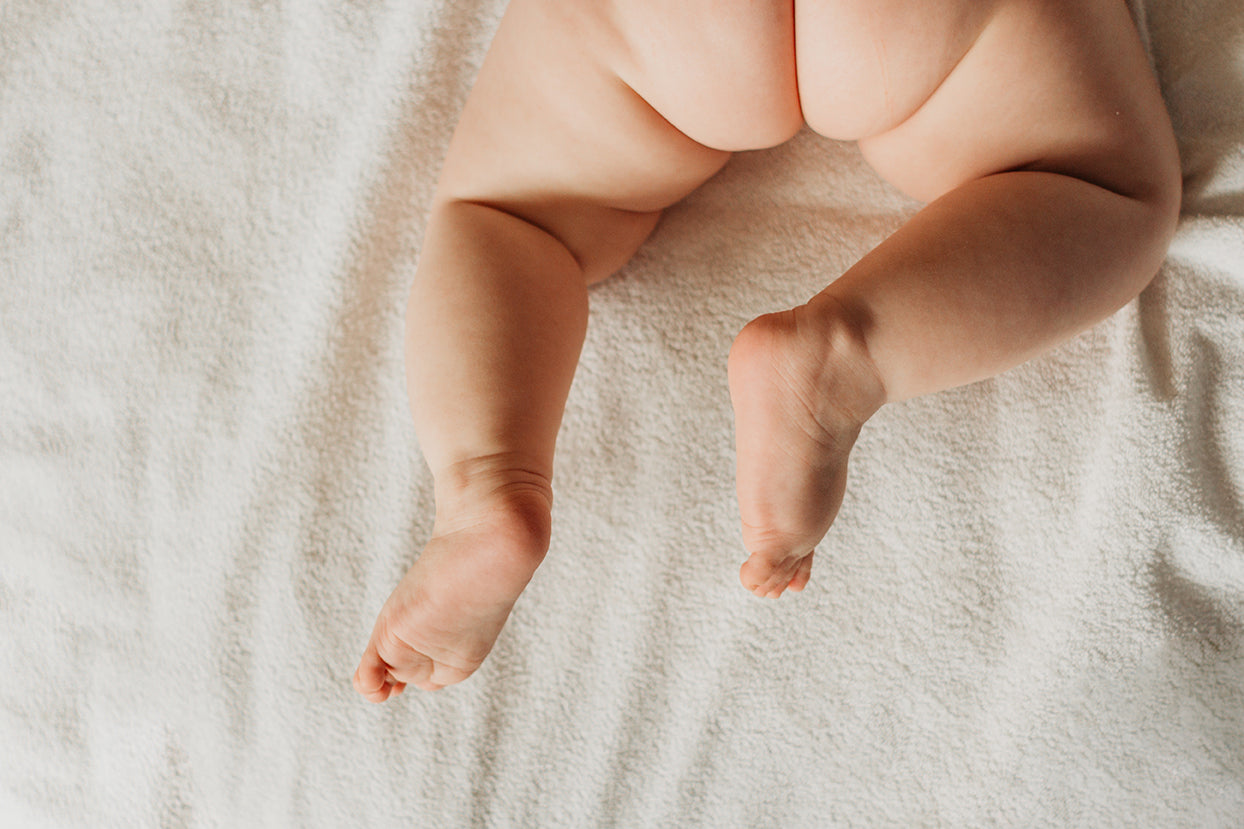
Nappy rash is most often caused when a baby’s sensitive skin comes into contact with urine and stool, especially when the skin stays damp for too long. In the first few days after birth, babies pass meconium—a sticky, tar-like stool that can be particularly difficult to wipe away. Without a barrier cream, cleaning meconium can irritate the skin more easily than normal baby stools.
Many conventional bum creams contain harsh petrochemicals such as mineral oil and paraffin wax, which create a total seal over the skin. While they block out moisture, they can also trap toxins beneath the skin’s surface, preventing it from breathing and leading to further irritation.
To help prevent nappy rash, use a natural, breathable bum cream—free from petrochemicals. Our certified organic Baby Bum Cream is safe for newborns and contains baobab extract, olive, lavender, and tea tree oil to soothe, protect, and keep skin dry.
Pair it with our Pure Beginnings Baby Wipes, made from 100% biodegradable plant fibre and soaked in a gentle lotion with organic aloe and tea tree oil. Together, they’re the perfect duo to keep your baby’s skin clean, calm, and rash-free.

Lightening Your Chemical Load Every day, our families come into contact with countless products — from the toothpaste and deodorants we use, to the washes we lather on our bodies,...
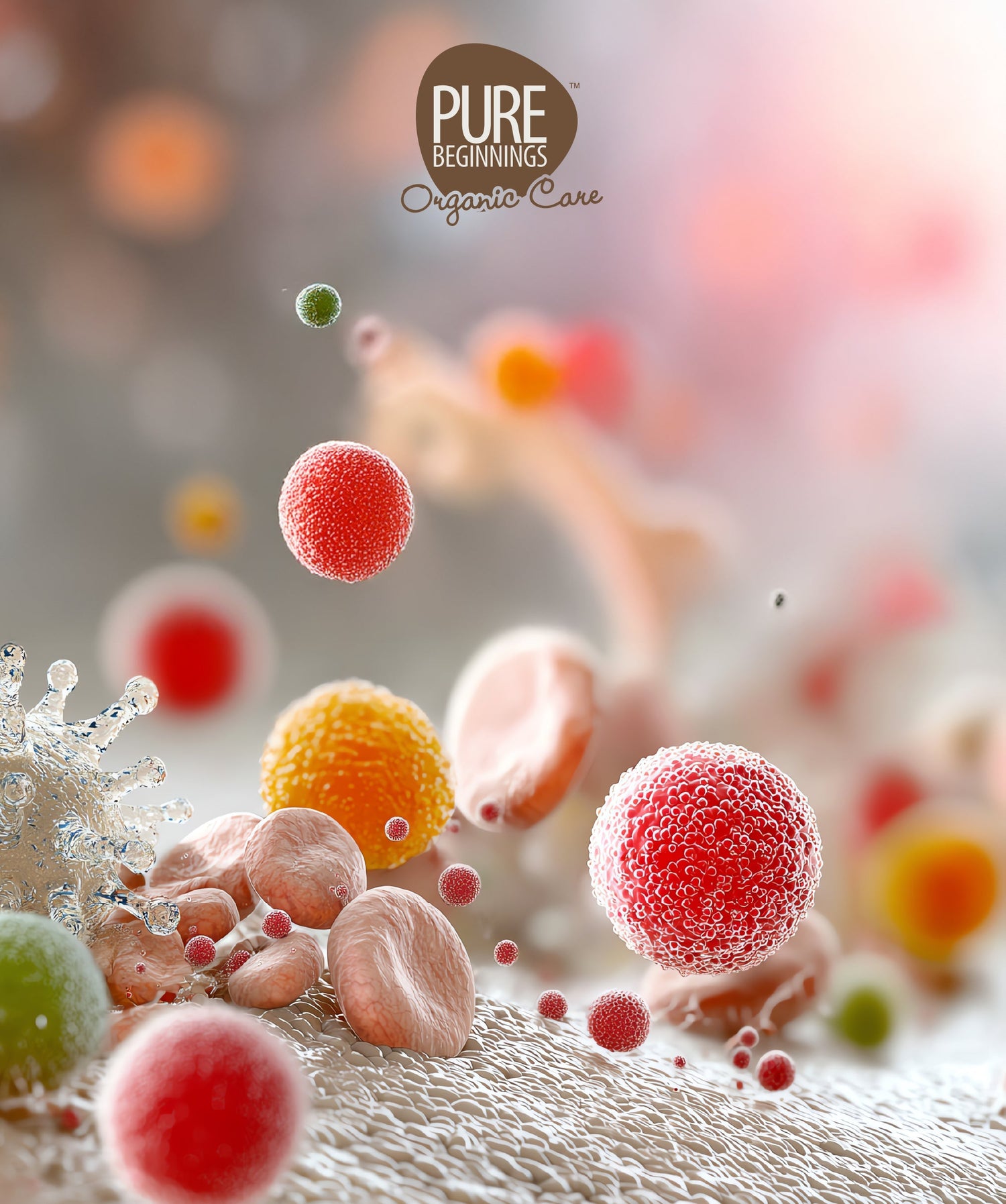
7 Simple Steps to Protect Your Microbiome We know that a healthy microbiome is the foundation of strong, resilient skin. Your skin is home to billions of tiny organisms that...
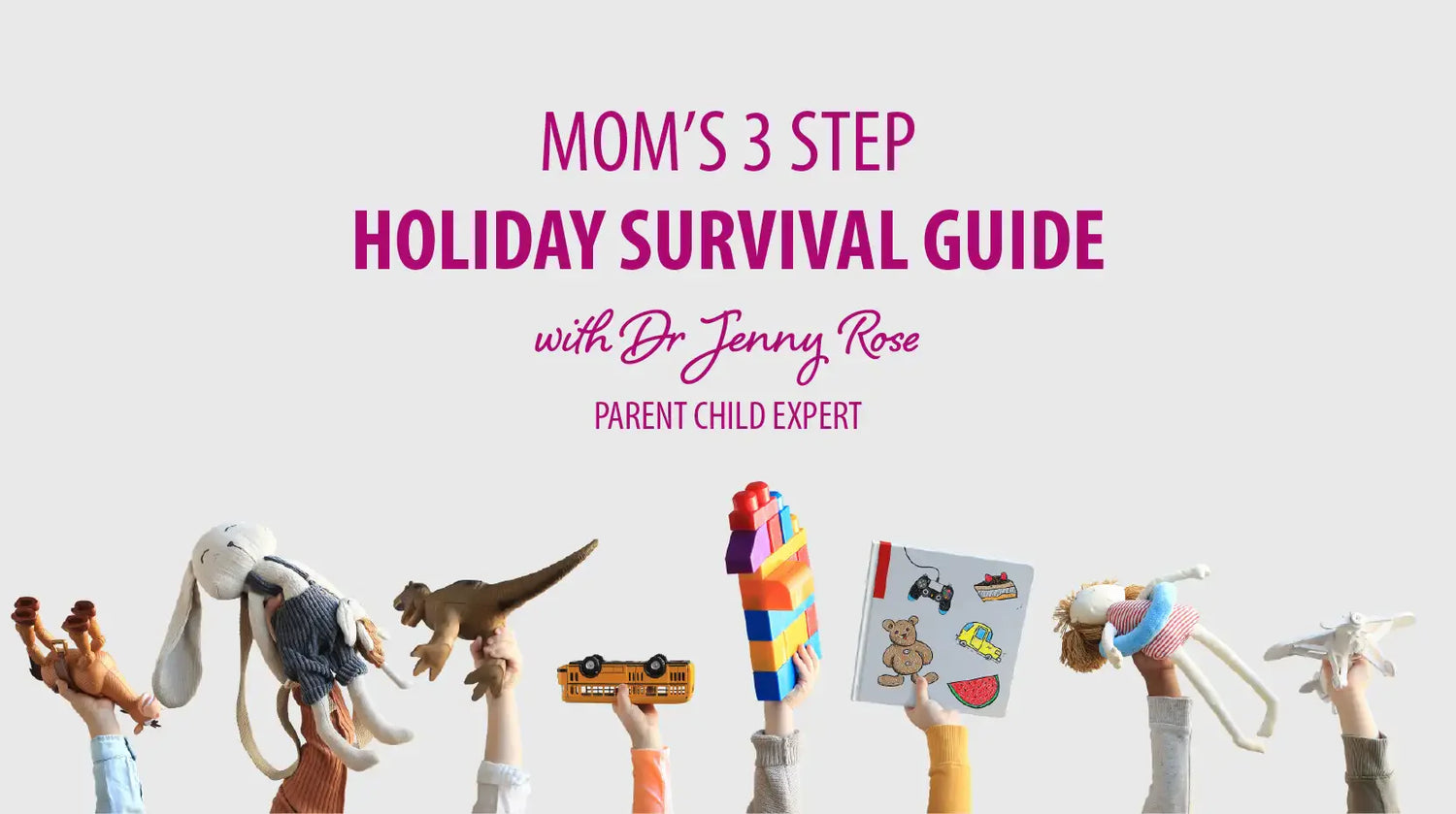
With the winter school holidays in full swing, many parents might be feeling overwhelmed or anxious at the prospect of their kids being home for three long weeks! You may...